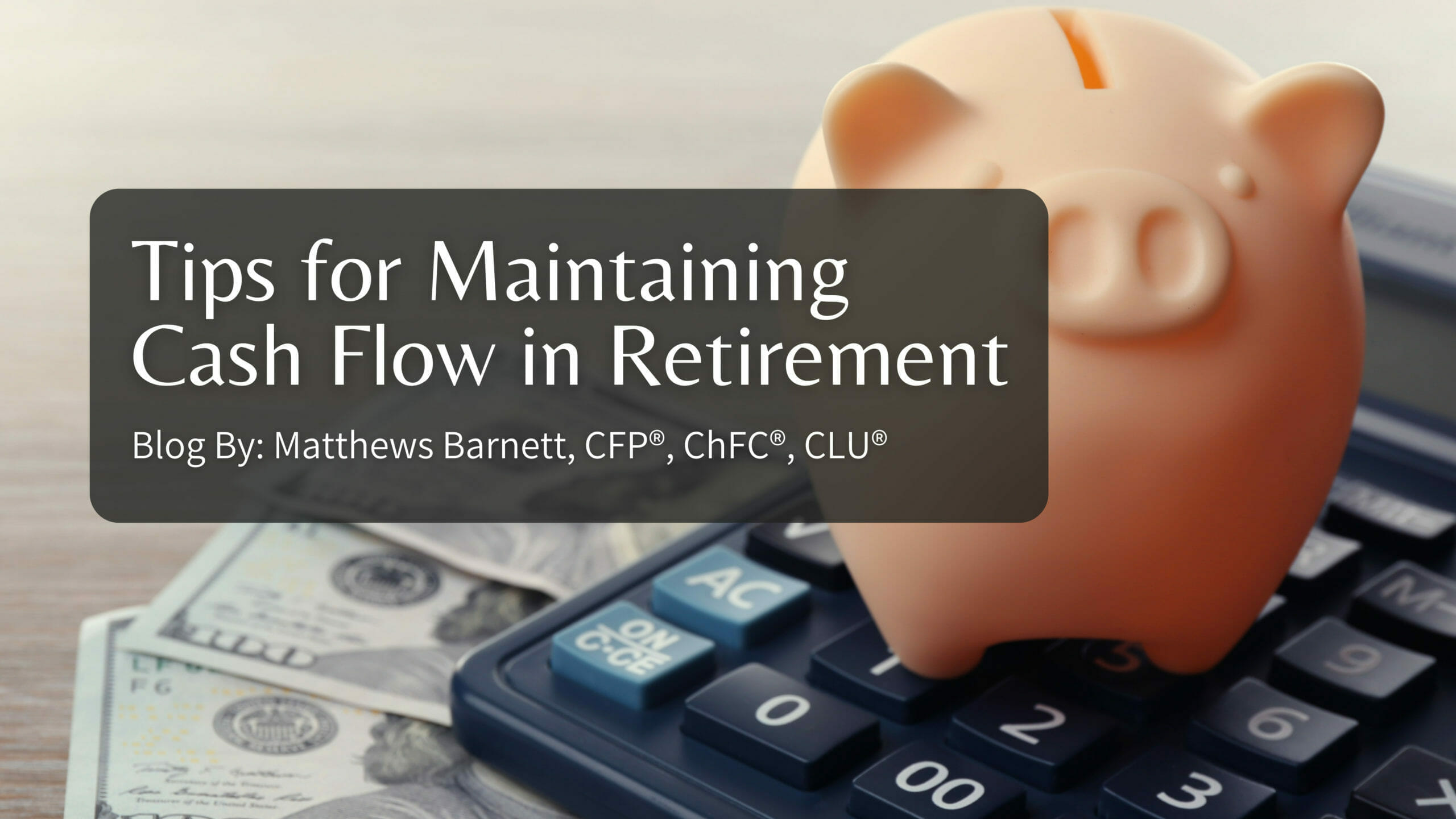Tips for Maintaining Cash Flow in Retirement

Not having a paycheck anymore can be scary, no matter the reason. When we talk with clients about their concerns in retirement, the loss of a steady and consistent paycheck is top of their list. However, there are ways to plan for life in retirement that will greatly reduce this anxiety. One of the most essential, but often over looked, is determining how much income you will need once you’ve retired. Predicting a specific amount can be challenging, but one way to make it a lot simpler is to retire debt free because debt payments greatly impact cash flow. We write about the importance of debt-free retirement in other blogs and discuss it on our weekly podcasts because we feel it is the key factor for maintaining peace of mind once you’ve retired. However, once that first step is taken care of, there are several other ways to plan for life in retirement.
Spending During Retirement
A crucial next step is to discuss your goals for life in retirement. What type of lifestyle do you want to have after you stop working? Some retirees will want to live modestly while others will want to travel and maintain an active lifestyle. This is the first consideration when thinking about how much you need to save for your golden years. Will Social Security and a small nest egg cover your lifestyle or will you need more money to accomplish all your saved up plans?
Typically, monthly expenditures during retirement are more variable than during working years. Many new retirees enter retirement by traveling and being on the go. We call these the “go-go” years. During this time, retirees are spending more and monthly expenses vary widely. As we age and move out of the “go-go” years, we tend to slow down and spend less, but this does not mean the need for income lessens. At the end of life, living expense spending typically decreases while we see significant peaks in rising health care costs. All of these phases should be taken into consideration when determining how much you will need to save in retirement funds.
Income Sources for Retirement
Once those expenses are determined, look at where income can come from to replace your paycheck. Typical sources are 401ks, IRAs, Roth IRAs, brokerage accounts, pensions (for some), rental income, part time work and, eventually, social security. It is important to optimize where the income comes from for tax purposes and max benefit reasons. You will most likely want to take out the maximum benefit to meet your needs, while minimizing taxes and not running out of funds before you are 95 years old. We use financial planning software that simultaneously combines all these factors to help us optimize retirement income for our clients.
How can your portfolio be your partner?
The next question to ask is “How much income can your portfolio generate in retirement?” During retirement, we no longer look at the portfolio as a growth engine, but as a way to pay out income. As a rule of thumb, we recommend your portfolio be able to pay out 4% per year. The key is to create a portfolio with a return stream that can match the expenditures of the retiree and handle inflation each year. We recommend retired clients have a cash bucket within the portfolio that covers expenses for two to three years.
Plan Ahead of Time
Planning for retirement can feel daunting, but a well thought out plan can help you save on stress later. If you have any questions about retirement planning or would like to discuss your current financial picture, please don’t hesitate to contact us here at Wiser Wealth Management.
Have more questions? Contact Us
Matthews Barnett, CFP®, ChFC®, CLU®
Financial Advisor
Share This Story, Choose Your Platform!
Wiser Wealth Management, Inc (“Wiser Wealth”) is a registered investment adviser with the U.S. Securities and Exchange Commission (SEC). As a registered investment adviser, Wiser Wealth and its employees are subject to various rules, filings, and requirements. You can visit the SEC’s website here to obtain further information on our firm or investment adviser’s registration.
Wiser Wealth’s website provides general information regarding our business along with access to additional investment related information, various financial calculators, and external / third party links. Material presented on this website is believed to be from reliable sources and is meant for informational purposes only. Wiser Wealth does not endorse or accept responsibility for the content of any third-party website and is not affiliated with any third-party website or social media page. Wiser Wealth does not expressly or implicitly adopt or endorse any of the expressions, opinions or content posted by third party websites or on social media pages. While Wiser Wealth uses reasonable efforts to obtain information from sources it believes to be reliable, we make no representation that the information or opinions contained in our publications are accurate, reliable, or complete.
To the extent that you utilize any financial calculators or links in our website, you acknowledge and understand that the information provided to you should not be construed as personal investment advice from Wiser Wealth or any of its investment professionals. Advice provided by Wiser Wealth is given only within the context of our contractual agreement with the client. Wiser Wealth does not offer legal, accounting or tax advice. Consult your own attorney, accountant, and other professionals for these services.





